Harvey aid, debt on returning Congress’ daunting to-do list
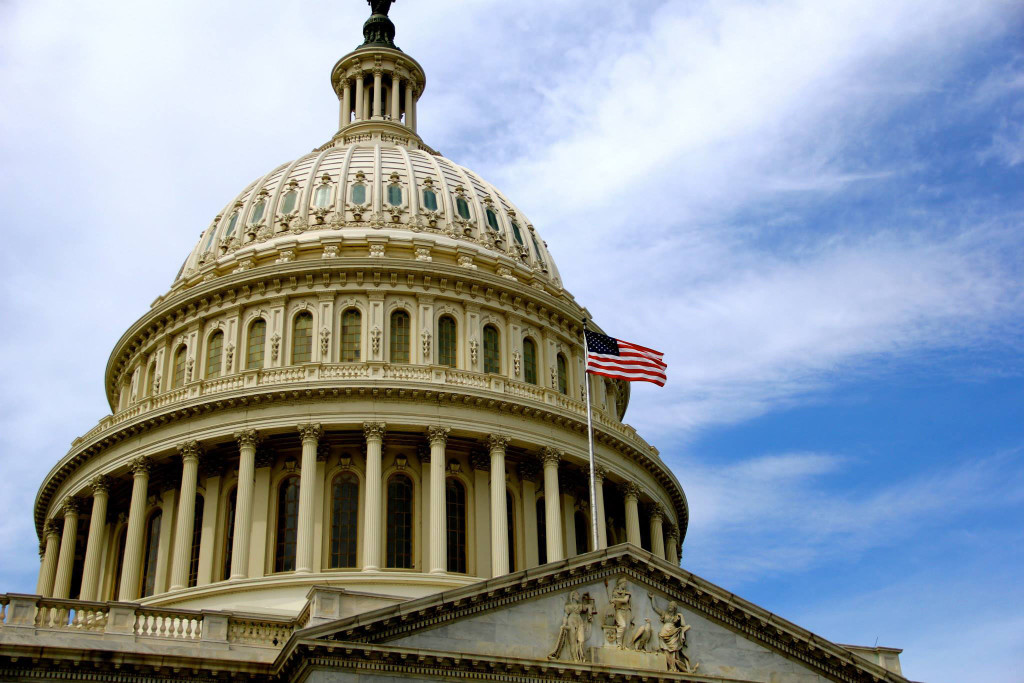
Congress ends its five-week summer recess Tuesday as storm-ravaged states clamor for Harvey aid, the Trump administration demands a swift increase in the nation’s borrowing authority, and President Donald Trump‘s actions on immigration seem certain to upend the fall agenda. Lawmakers face a daunting workload and fast-approaching deadlines, including the need to fund the government and increase the United States’ $19.9 trillion debt ceiling by month’s end. A Republican-led Congress with no major legislative achievement in the first seven months of Trump’s presidency also is intent on overhauling the nation’s tax code, hoping for a political win after the failure of repealing and replacing Barack Obama‘s health care law. The immediate focus will be rushing a $7.9 billion disaster relief package to Harvey victims. Treasury Secretary Steve Mnuchin raised the stakes last weekend by calling on Congress to combine the aid with a contentious increase in the nation’s borrowing limit. Conservatives oppose raising the borrowing limit without getting something in exchange, such as deep cuts elsewhere in federal spending. “The president and I believe that it should be tied to the Harvey funding,” Mnuchin said Sunday. “If Congress appropriates the money, but I don’t have the ability to borrow more money and pay for it, we’re not going to be able to get that money to the state. So, we need to put politics aside.” The House and Senate are expected to vote quickly on the first $7.9 billion aid installment to help with immediate recovery and rebuilding needs in Houston and beyond. Additional billions will be tucked into a catchall spending bill later in the month that will keep the lights on in government past Sept. 30, when the current budget year ends. “Somebody who’s just been pulled off their roof doesn’t want to hear about our internecine squabbles and debates over procedure when they’ve lost their homes and are trying to figure out where they’re going to sleep the next night,” said Rep. Charlie Dent, R-Pa. Swift action on Harvey will give Congress and Trump the chance to look competent and remind voters that government can be a positive force. GOP lawmakers head into the final quarter of the year desperate to notch accomplishments and make headway on a sweeping tax overhaul, and the majority party is eager for the chance to turn around its dreary track record ahead of next year’s midterm elections. Trump may toss another tricky issue Congress’ way. The president was expected to announce that he will end protections for young immigrants who were brought into the country illegally as children, but with a six-month delay. The postponement in the formal dismantling of the Deferred Action for Childhood Arrivals, or DACA, program would be intended to give Congress time to address the issue. But it was unclear whether it could resolve the problem given that it has had several failures in attempts to enact comprehensive immigration reform. Some Republicans, led by House Speaker Paul Ryan, R-Wis., have urged Trump not to end the program and save nearly 800,000 from threat of deportation. Adding to the pile of work, a few important programs are expiring at the end of September and need to be renewed. They include children’s health insurance payments and a national federal flood insurance program that has bipartisan support but continually pays out more than it takes in through premiums. Republished with permission from the Associated Press.
A torn Donald Trump still weighing fate of young immigrants
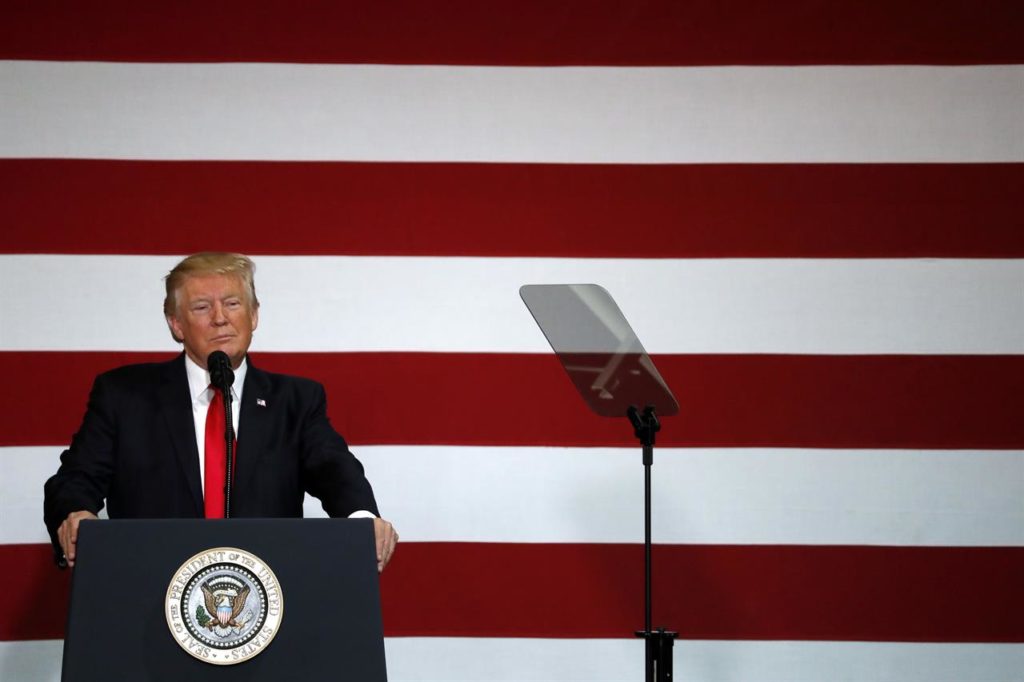
With a deadline looming, President Donald Trump remains torn over the fate of hundreds of thousands of young immigrants who were brought into the country illegally as children — a decision that will draw fury no matter what he decides. Trump railed against the Deferred Action for Childhood Arrivals program during his campaign, slamming it as illegal “amnesty.” But he changed his tune after the election, calling DACA one of the most difficult issues he’s grappled with. The program has given nearly 800,000 people a reprieve from deportations. It has also provided the ability to work legally in the U.S. in the form of two-year, renewable work permits — permits the Trump administration has continued to grant as the president has mulled the issue. On Wednesday, White House press secretary Sarah Huckabee Sanders said DACA was still the subject of “a very lengthy review” process. “It’s something that’s still being discussed and a final decision hasn’t been made,” she said. Activists on both sides of the issue — as well as some people close to the White House — strongly expect the president to announce as soon as this week that he will move to dismantle the program, perhaps by halting new applications and renewals. But others caution that Trump remains torn as he faces a September 5 deadline set by a group of Republican state lawmakers, who are threatening to challenge DACA in court if the administration does not start to dismantle it by then. To buy more time, administration officials have considered asking the lawmakers to push back their deadline by several months, according to two people familiar with the discussions. The people, who spoke on condition of anonymity because they were not authorized to publicly discuss the matter, said such a delay was seen as a chance to avoid forcing a contentious immigration showdown in Congress at the same time lawmakers are trying to pass a budget deal, raise the debt ceiling and provide relief for states devastated by Harvey. Texas Attorney General Ken Paxton, leading the group threatening to sue, is likely to be consumed by storm recovery efforts in coming months, providing possible cover for the delay. Trump could also simply ignore the deadline, leaving the matter up to Congress and the courts. Trump’s administration has been split, as usual, between immigration hard-liners such as senior policy adviser Stephen Miller and Attorney General Jeff Sessions, who argues DACA is unconstitutional, and more moderate individuals such as the president’s son-in-law Jared Kushner and daughter Ivanka, who want to protect the so-called “dreamers,” according to people close to the administration. Trump’s former chief strategist, Steve Bannon, also urged him to make good on his campaign promise to eliminate the program. “The White House is deeply split,” said former House Speaker Newt Gingrich, an informal Trump adviser. He said targeting DACA would be a dire mistake for the president, earning the ire of nearly 800,000 people, along with their friends and families. “To me, it would be utterly irrational to pick a fight over the dreamers,” Gingrich said, adding that ending the program would further hamper the president and isolate his administration. Gingrich said senior Trump aides who believe DACA is unconstitutional were using the lawsuit threat as an “excuse” to push Trump to act. Instead, he said, the president would be wise to let the deadline pass, and call on Congress to approve legislation protecting those covered by the program. Meanwhile, activists supporting DACA have been mounting a furious lobbying effort, operating phone banks, meeting with lawmakers, sending letters and staging protests to draw attention to the fate of what are undoubtedly the most sympathetic immigrants living in the country illegally. Many came to the U.S. as young children and have no memories of or connection to the countries they were born in. Trump had been unusually candid about his struggles with the issue. During a February press conference, Trump said the topic was “a very, very difficult subject for me, I will tell you. To me, it’s one of the most difficult subjects I have.” “You have some absolutely incredible kids — I would say mostly,” he said, adding, “We’re going to show great heart.” The decision comes at a fraught time for the president, who finds himself increasingly under fire, with his poll numbers hanging at near-record lows. In the wake of his much-criticized response to the violence in Charlottesville, Virginia, and continued questions about his campaign’s ties to Russia, Trump is increasingly isolated and concerned about maintaining the loyalty of his core supporters. “His campaign promise was solid. It was that he was going to end DACA. He didn’t say he was going to phase it out. He said he would end it,” said Rep. Steve King of Iowa, a vocal opponent of the program. King said he expected Trump to make good on his promise, and he rejected another possible solution: using DACA as a bargaining chip to win funding for Trump’s southern border wall or other immigration legislation. “It would be immoral to trade away our Constitution,” he said. But Mario H. Lopez, president of the conservative Hispanic Leadership Fund, which disagreed with the way the Obama administration implemented the policy, said there were no upsides to punishing people who were brought to the country through no fault of their own. “Punishing kids for what their parents did is just a bad idea,” he said. “It’s bad politics, it’s bad policy. It’s just bad all around.” If permit renewals are put on hold, more than 1,400 recipients will lose their ability to work each day, according to a report by the Center for American Progress and FWD.us, two advocacy groups. The Obama administration created the DACA program in 2012 as a stopgap way to protect some young immigrants from deportation as it continued to push for a broader immigration overhaul in Congress. Republished with permission from the Associated Press.
U.S. to expand pool of people targeted for deportation
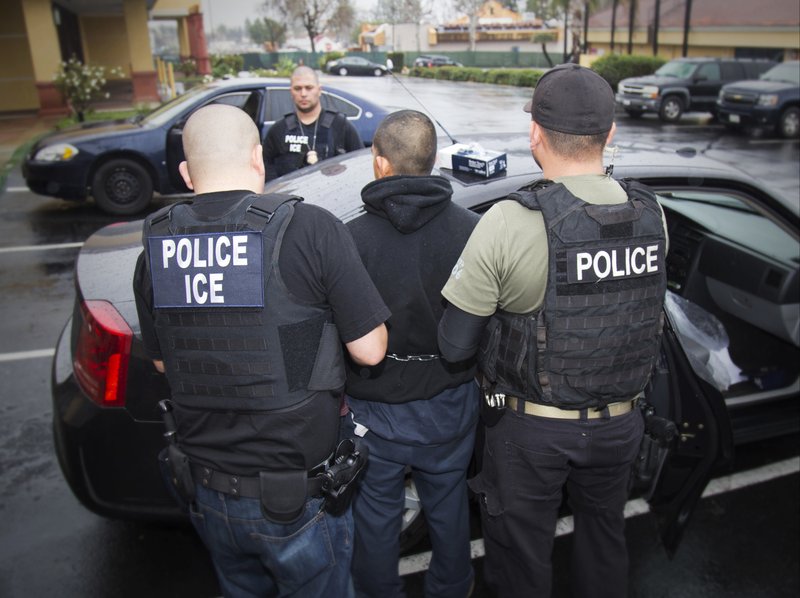
The Trump administration is greatly expanding the number of people living in the U.S. illegally who are considered a priority for deportation, including people arrested for traffic violations, according to agency documents released Tuesday. The documents represent a sweeping rewrite of the nation’s immigration enforcement priorities. The Homeland Security Department memos, signed by Secretary John Kelly, lay out that any immigrant living in the United States illegally who has been charged or convicted of any crime — and even those suspected of a crime — will now be an enforcement priority. That could include people arrested for shop lifting or minor traffic offenses. The memos eliminate far more narrow guidance issued under the Obama administration that resources strictly on immigrants who had been convicted of serious crimes, threats to national security and recent border crossers. Kelly’s memo also describes plans to enforce a long-standing but obscure provision of the U.S. Immigration and Nationality Act that allows the government to send some people caught illegally crossing the Mexican border back to Mexico, regardless of where they are from. One of the memos says that foreigners sent back to Mexico would wait for their U.S. deportation proceedings to be complete. This would be used for people who aren’t considered a threat to cross the border illegally again, the memo said. It’s unclear whether the United States has the authority to force Mexico to accept foreigners. That provision is almost certain to face opposition from civil libertarians and officials in Mexico. Historically, the government has been able to quickly repatriate Mexican nationals caught at the border but would detain and try to formally deport immigrants from other countries, routinely flying them to their home countries. In some cases, those deportations can take years as immigrants ask for asylum or otherwise fight their deportation in court. The memos do not change U.S. immigration laws, but take a far harder line toward enforcement. The pair of directives do not have any impact on President Barack Obama‘s program that has protected more than 750,000 young immigrants from deportation. The Deferred Action for Childhood Arrivals remains in place though immigrants in the program will be still be eligible for deportation if they commit a crime or otherwise are deemed to be a threat to public safety or national security, according to the department. Republished with permission of The Associated Press.
President Donald Trump says he’s torn over young immigrants
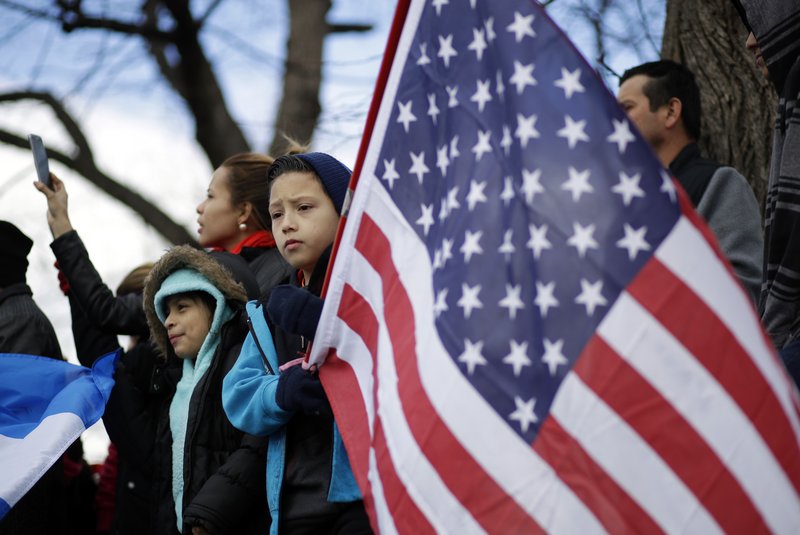
President Donald Trump spoke in unusually personal terms as he answered a question at a White House press conference about hundreds of thousands of young immigrants whose fate rests in his hands. “We’re going to show great heart. DACA is a very, very difficult subject for me, I will tell you. To me, it’s one of the most difficult subjects I have,” the president said Thursday in a rare admission of uncertainty. “Because you have these incredible kids, in many cases,” he said. Trump was referring to his predecessor’s Deferred Action for Childhood Arrivals program, which allows young people who were brought into the country illegally as children to stay and obtain work permits. The program has protected about 750,000 immigrants since its inception in 2012. Trump had promised during his campaign to “immediately terminate” what he’d deemed “President Obama’s two illegal executive amnesties.” But he has yet to move forward on the issue, despite pressure from immigration hard-liners, including Rep. Steve King of Iowa. While he had previously suggested those covered by the program would be safe from immediate deportation, the president has yet to say whether they will be allowed to continue living and working in a country that is the only many have known. On Thursday, Trump suggested he still has work to do to convince reluctant congressional leaders to get on board. “I have to deal with a lot of politicians, don’t forget. And I have to convince them that what I’m saying is, is right,” he said. But the president suggested that he’s been mulling a solution that goes beyond simply overturning DACA, as he had pledged. “You know, I love these kids. I love kids. I have kids and grandkids. And I find it very, very hard doing what the law says exactly to do,” he said. “And you know the law is rough. I’m not talking about new laws. I’m talking the existing law is very rough. It’s very, very rough.” Immigration lawyers, activists and those protected by the program have been waiting anxiously for any signs of what Trump might do since he took office last month. The issue returned to the headlines this week after a Seattle-area man participating in the program was detained by immigration agents. The U.S. Justice Department said Daniel Ramirez Medina, 23, admitted to having gang ties. But one of Ramirez’ lawyers, Mark Rosembaum, has said the allegations are false. Trump’s comments came as immigrants across the country were staying home from work and school as part of “A Day Without Immigrants” national protest. Many businesses have closed in solidarity to demonstrate the importance of immigrants to the American economy. Republished with permission of The Associated Press.
Donald Trump says White House ‘fine-tuned machine,’ despite turmoil

Donald Trump mounted an aggressive defense of his young presidency Thursday, lambasting reports that his campaign advisers had inappropriate contact with Russian officials and vowing to crack down on the leaking of classified information. Nearly a month into his presidency, Trump insisted in a freewheeling White House news conference that his new administration had made “significant progress” and took credit for an optimistic business climate and a rising stock market. The president denounced media reports of a chaotic start to his administration marked by his contentious executive order — rejected by a federal appeals court — to place a ban on travelers from seven predominantly Muslim nations. Trump said he would announce a “new and very comprehensive order to protect our people” next week. “This administration is running like a fine-tuned machine,” Trump declared in a lengthy news conference that saw the new commander in chief repeatedly interrupting reporters’ questions and airing his grievances. Throughout the encounter the new president delivered recurring criticism of the news media, accusing it of being “out of control” and promising to take his message “straight to the people.” He dismissed recent reports in The New York Times and on CNN that Trump campaign aides had been in contact with Russian officials before his election. Trump called Paul Manafort, his former campaign manager who has ties to Ukraine and Russia, a “respected man.” Pressed repeatedly, Trump said that “nobody that I know of” on his campaign staff had contacted Russian officials. He called such reports a “ruse” and said he had “nothing to do with Russia.” Trump added, “Russia is fake news. This is fake news put out by the media.” Amid reports of widespread leaks within his administration, Trump also warned that he would clamp down on the dissemination of sensitive information, saying he had asked the Justice Department to investigate. “Those are criminal leaks,” adding, “The leaks are real. The news is fake.” He blamed any problems on the outgoing Obama administration. “I inherited a mess at home and abroad — a mess,” Trump said. The president announced that Alexander Acosta, the dean of the Florida International University law school, would be his nominee for Labor secretary. That came a day after fast-food executive Andrew Puzder withdrew his nomination for Labor after losing support among Republican senators. Trump, a reality television star and real estate mogul who was elected as an outsider intent on change, said his ousted national security adviser, Michael Flynn, was “just doing his job” in talking with Russian officials before the inauguration. But he said he was “not happy” with how Flynn described his phone call with a Russian diplomat to Vice President Mike Pence. Trump knew for weeks that Flynn had misled Pence but did not inform the vice president, according to a timeline of events supplied by the White House. Trump said he had identified a strong replacement for Flynn, which made the decision to let him go easier. Trump is said to favor Vice Admiral Robert Harward, a former Navy SEAL, as his next national security adviser, according to a White House official. Harward met with top White House officials last week and has the backing of Defense Secretary Jim Mattis. He was meeting with officials later Thursday. Addressing immigration, one of the biggest issues of the past campaign, Trump said it was difficult dealing with the policy known as DACA, which allows young adults to get work permits and Social Security numbers and protects them from deportation. Referring to the Deferred Action for Childhood Arrivals rule, he said he would “deal with DACA with heart.” While Trump has promised to halt illegal immigration as a cornerstone of his administration, he has also promised to focus on people who have committed crimes. He said he had the “best lawyers” working on the policy now and the “new executive order is being tailored to the decision we got from the court.” Earlier in the day, Trump had a breakfast meeting with some of his staunchest House supporters. The White House has said Trump asked for Flynn’s resignation because he had misled Vice President Mike Pence over his dealings with Russia and whether he had discussed sanctions with Russia’s ambassador to the U.S. before Trump’s Jan. 20 inauguration. Flynn previously had denied those conversations to Pence and other top officials. On Thursday, he warned in a pair of tweets that “lowlife leakers” of classified information will be caught. As journalists were being escorted out of the breakfast meeting, Trump responded to a reporter’s question on the subject by saying: “We’re going to find the leakers” and “they’re going to pay a big price.” Republished with permission of The Associated Press.
Donald Trump mulling fate of young immigrants protected by Barack Obama
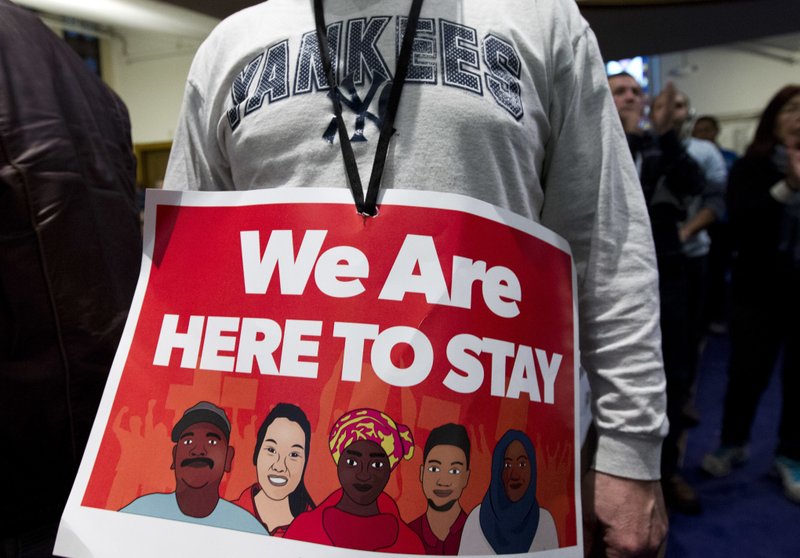
Missing from President Donald Trump‘s blitz of immigration orders was any mention of the fate of hundreds of thousands of young immigrants protected from deportation by former President Barack Obama. That omission has left immigration advocates hopeful Trump has softened his opposition to what he once derided as “illegal amnesty,” while others say he has quickly abandoned a core campaign pledge. Trump and Republican leaders in Congress have said they are working on a plan that will address the status of the roughly 750,000 immigrants currently protected by the Deferred Action for Childhood Arrivals program, or DACA. The program allows young people who were brought into the country illegally as children to stay and obtain work permits. Neither the president nor GOP leaders have disclosed details on their discussions, although both have suggested those currently protected under the program won’t face immediate deportation. Whether they will be allowed to continue to work remains unclear. Trump said this past week he intends to reveal a proposal within a month. “They shouldn’t be very worried,” Trump told ABC News. “I do have a big heart. We’re going to take care of everybody. … Where you have great people that are here that have done a good job, they should be far less worried.” Trump’s delay and the tone of his remarks were a striking shift from the campaign, when he promised to quickly end the program and labeled it amnesty. “We will immediately terminate President Obama’s two illegal executive amnesties, in which he defied federal law and the constitution to give amnesty to approximately 5 million illegal immigrants,” Trump said in August. His current approach appears to be a concession to Republican leaders in Congress who have called for a less aggressive stand on an issue that has pushed some Latino voters away from the party. House Speaker Paul Ryan, R-Wis., has argued for a more compassionate approach in dealing with these young immigrants. He has discussed the issue privately with the president and recently said congressional Republicans had been working with his team on a solution. DACA was arguably the most significant and high-profile change Obama made to immigration policy, one he said he made only after Congress failed to enact a broader immigration overhaul. The status of the immigrants, some of whom have little or no connection to the country where they were born, has been a focus of advocates’ anxiety and activism since Trump’s election. The program would be relatively simple for Trump to reverse. The policy does not require an executive order. As of Friday afternoon, the U.S. Citizenship and Immigration Services said it was still processing DACA-related work permits. Trump’s White House is thought to be divided on the how to handle the issue. Those who have pushed Trump to embrace more restrictive immigration policies, including policy guru Stephen Miller, are said to prefer a harder line. On the other side are those in the White House considered more moderate, including chief of staff Reince Priebus, who said recently that the White House is planning to work with House and Senate leadership “to get a long-term solution on that issue.” Under a draft executive order first published by the news site Vox, the government would immediately halt processing new DACA applications, but would allow those who already have work permits to retain them until they expire sometime over the next two years. Trump faces pressure from GOP hard-liners, including Iowa Rep. Steve King, who has chafed at signals from Trump aides that immigrants covered by DACA are not a priority for deportation. King said Trump risks a backlash from his political base if he doesn’t act swiftly “because it was a clear and definitive promise that he made.” “And when you hear these kinds of statements coming out of the chief of staff and some of these statements that echo pretty closely out of the speaker of the House, it gives real pause to rule of law conservatives,” he said. Advocates on both sides are expecting a compromise in which the president perhaps ends DACA and then works with Congress on a permanent solution that allows these immigrants to stay in the country. Mark Gonzales, the president of the Hispanic Action Network, said Trump’s actions this past week have “definitely shaken up our Hispanic community and the immigrant community in particular.” But he said that he’s confident from Trump and his aides’ rhetoric that young immigrants currently protected by DACA don’t have to be alarmed. “He’s making clear that even though they’re going to repeal DAPA and DACA, the Dreamers are not the ones they’re going to be coming after,” said Gonzales. “They’re going to find a way to deal with the Dreamers in the way that is not deportation. That’s good news to our ears.” Mark Krikorian, the executive director of the conservative Center for Immigration Studies, which advocates for tighter restrictions on immigration, said he’s open to a compromise in which, for instance, those previously covered by DACA receive green cards in exchange for other concessions. “Suspending DACA processing is an extremely simple, clear-cut thing. And if they haven’t done it by now, there’s some reason for it,” said Krikorian. Young people covered by the program have been glued to their televisions anytime Trump takes action, said California lawyer Sergio Garcia, who estimates he’s handled more than 15,000 DACA applications. There’s “a lot of anxiety, uncertainty of not knowing what tomorrow holds,” he said. Republished with permission of The Associated Press.
Donald Trump’s new tone on immigrant kids divides GOP
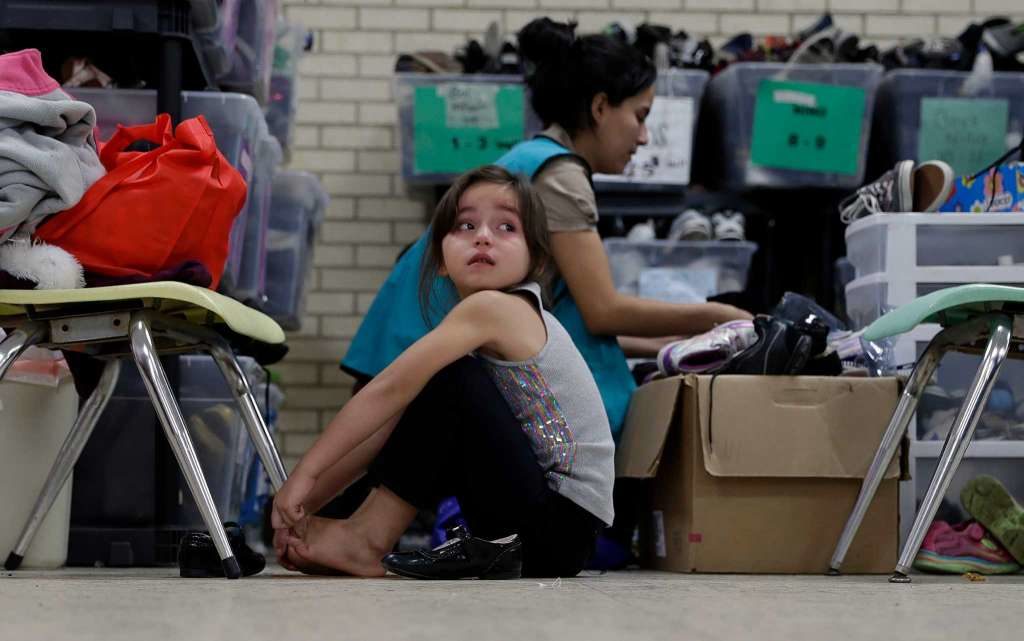
Donald Trump‘s promise to “work something out” for immigrants brought here illegally as kids is dividing fellow Republicans, underscoring how difficult it will be for Congress to take any action on immigration, whether it’s building a wall or dealing with immigrant youths. Complicating matters, the president-elect’s advisers worked to walk back his comments almost as soon as they were published, with one transition aide demanding anonymity to deny that Trump intended to set any new policy. Trump’s remarks about the young immigrants, known to their supporters as “Dreamers,” came in a Time magazine interview in connection with his designation as “Person of the Year.” During the campaign Trump pledged to “immediately terminate” President Barack Obama‘s executive actions on immigration, including the 2012 Deferred Action for Childhood Arrivals, known as DACA, which has extended work permits and temporary deportation relief to more than 700,000 immigrants brought illegally to this country as youths. But in the interview published Wednesday he adopted a far more sympathetic tone. “We’re going to work something out that’s going to make people happy and proud,” Trump said. “They got brought here at a very young age, they’ve worked here, they’ve gone to school here. Some were good students. Some have wonderful jobs. And they’re in never-never land because they don’t know what’s going to happen.” Trump did not offer details, and Time said that he did not back off his pledge to undo Obama’s executive actions. But Republicans who’ve supported congressional action to help immigrant youths welcomed Trump’s new tone. “I can tell you I’m very relieved at his comments today and I think folks back home in my district and across the country are going to be very relieved as well,” said Rep. Mike Coffman, R-Colo. “Obviously Dreamers is one part of the equation, I clearly hope we do more. But I think that’s got to be the top priority to do.” Trump’s comments were also welcomed by some Democrats. Senate Democratic leader Harry Reid of Nevada cited them in an interview Thursday on NPR as evidence that Trump is “not as bad as I thought he would be.” For immigration hard-liners, on the other hand, Trump’s comments set off alarm bells. “We have an obligation to restore the rule of law and you can’t do that while you’re rewarding people who break it,” said Rep. Steve King, R-Iowa. “It’s the principle of the rule of law that’s at stake and I’m hopeful that prudent heads will prevail.” Because immigrants must reapply for DACA and work permits every two years, even if he doesn’t proactively undo DACA Trump could effectively cancel out the program over time by taking no action to renew it. But a transition aide, demanding anonymity because he was not authorized to speak on the record, downplayed Trump’s comments and said his original promise to roll back Obama’s executive actions stood. Obama announced the DACA program after Congress failed to pass legislation giving a path to legal status for Dreamers. Subsequently, a comprehensive, bipartisan bill passed the Senate in 2013, but it stalled in the GOP-controlled House. Obama ultimately took another, broader, executive action, aimed mostly at protecting adult immigrants with U.S. citizen children, but that one got blocked in court. Lawmakers’ repeated failures during the Obama administration to come together on immigration overhaul legislation leaves it uncertain whether Congress will be able to pass anything at all on the divisive topic with Trump in the White House, despite his tough campaign rhetoric about building a border wall and ousting criminal immigrants. Trump could take some steps on his own, but would need Congress for major policy changes, including any permanent protections for Dreamers. Sens. Lindsey Graham, R-S.C., and Dick Durbin, D-Ill., planned to introduce a bill Thursday to address status for Dreamers. House Republicans want to pass a border security bill to make good on Trump’s repeated campaign promises to build a wall on the 2,000-mile U.S.-Mexico border, but key lawmakers and Trump himself have already suggested that it could end up including fencing or a “virtual” wall that falls short of the big wall Trump promised Mexico would pay for. And even if a border security bill does pass the House, Senate Democrats are likely to balk at passing it without also taking steps to offer legal status to the 11 million immigrants living in this country illegally, something that House Republicans could reject in turn. The opposing views suggest that, despite the prominence of immigration as an issue in the presidential campaign, inaction may be the likeliest end result on Capitol Hill. Republished with permission of The Associated Press.
Dreamers who signed up for deportation protection now feel exposed

Hundreds of thousands of young immigrants living in the country illegally willingly came out of the shadows and identified themselves to the Obama administration on the promise that they’d be safe from deportation and allowed to work. Some may now regret that decision. President-elect Donald Trump has promised to immediately scrap the program that protected these immigrants. If he does, it’s not clear whether he would take action against the more than 741,000 participants. But if he decides to pursue them, the government now has their addresses, photographs and fingerprints. Twenty-year-old Nancy Villas was among the first to apply for the Deferred Action for Childhood Arrivals program in the summer of 2012, waiting in line hours at a sign-up site at Chicago’s Navy Pier. Since then she’s been working part time at a child care center to pay for college classes. Now she’s worried she may eventually be forced to return to Mexico, a country she left when she was 9. “I knew it was the only way to have better opportunities,” Villas said. “I took the risk without thinking that somebody would want to take it away.” Trump made illegal immigration the cornerstone of his campaign, promising to build a massive wall along the Mexican border and deport millions of people living in the country illegally. Once he takes office, Trump can almost immediately rescind the promised protection and, with it, likely void the accompanying work permits. But there is little to suggest that he would move swiftly to deport program participants. In a post-election interview with CBS’ “60 Minutes,” Trump said he would focus initially on criminal immigrants living illegally in the U.S. He said that could be about 2 million to 3 million people, though that figure is likely inflated. Mark Krikorian, executive director for Center For Immigration Studies, said the fears of program participants may be overblown. “Unless there’s a crime issue or something specific that’s going to draw attention to an individual, I can’t see how they’d be a priority,” said Krikorian, whose think tank describes itself as low-immigration, pro-immigrant. President Barack Obama initiated the program to shield from deportation young immigrants, some of whom don’t even remember their native countries. It didn’t give the immigrants legal status, only “deferred action” – meaning they wouldn’t face deportation while they participated. There was never a guarantee that it would last beyond Obama’s term as president. A former immigration official who helped craft the program, John Sandweg, said the White House and the Homeland Security Department considered the reality that a future president could end it. But at the time, he said, it appeared that revoking already-approved protections would be politically difficult. “These are the kinds of kids you should bring out of the shadows,” said Sandweg, a former acting director of Immigration and Customs Enforcement. “I don’t think anyone envisioned a President Trump when this was created.” Trump wasn’t subtle about his opposition to the program. He called it an “illegal amnesty” and promised to “immediately terminate” the program. And since winning office, Trump has said he will nominate immigration hardliner Sen. Jeff Sessions as attorney general. As he considers other Cabinet vacancies, Trump has met with Kansas Secretary of State Kris Kobach, who led his state’s court fight to prevent an expansion of the deportation protection plan. When the program started, the Obama administration suggested that application files would not generally be used for enforcement efforts. U.S. Citizenship and Immigration Services addressed the concern in its published “frequently asked questions,” saying information would be shared with enforcement officials only if someone “meets the criteria” for deportation proceedings. But revoking the deportation protection would make those young immigrants almost immediately eligible to face deportation. Sandweg said going after participants would be a massive logistical undertaking that would only worsen backlogs in an already overburdened immigration court system where many people wait years for a final decision. Adding about 750,000 to the court system “would do nothing for public safety,” Sandweg said. Nonetheless, the mere prospect of that has prompted some Democratic lawmakers to ask Obama to protect these immigrants with pardons before he leaves office. And advocates for the young immigrants have pledged to keep up their fight to win public and political support for overhauling immigration laws. “We organized across the country, we shared our stories publicly and we came together. We took direct actions and held politicians accountable,” said Cristina Jimenez, executive director and co-founder of United We Dream. Under a Trump administration, Jimenez said, that won’t change. Republished with permission of the Associated Press.


